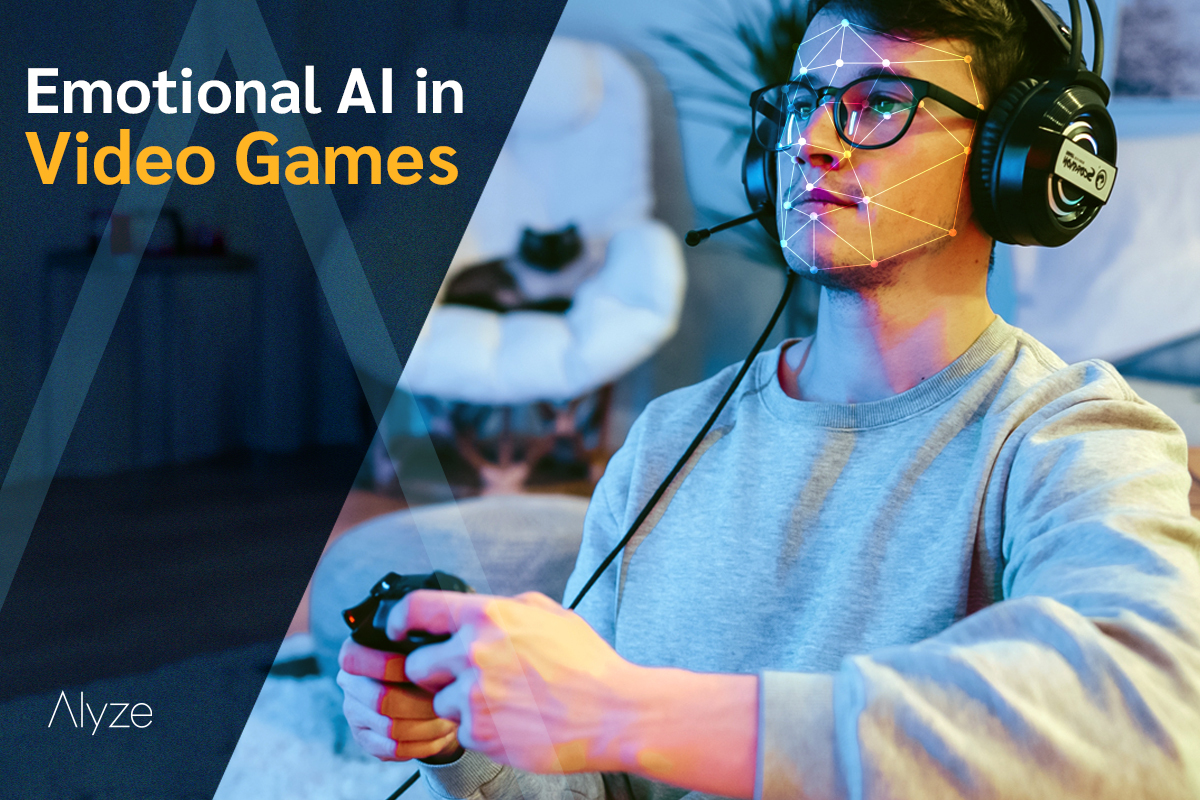
Unleashing the Power of Emotional AI in the Video Game Industry
- 1.Nevermind: from heart rate to emotion recognition biofeedback
- 2.Tencent: how to prevent video game addiction
- 3.How does emotional AI help the video game and e-sports industry?
The use of emotional AI, specifically facial recognition technology, in the video game industry is becoming increasingly prevalent as a way to enhance the player's experience and gather valuable data about player engagement.
One way in which facial recognition can improve the player's game experience is by allowing the game to respond to the player's emotional state. For example, if a player is experiencing frustration or anger, the game could adjust the difficulty level or provide a helpful hint to alleviate the negative emotion. This can lead to a more enjoyable and satisfying gameplay experience for the player.
Nevermind: from heart rate to emotion recognition biofeedback
One notable example of a video game that has used facial recognition to analyze player emotions is the game "Nevermind". Developed by Erin Reynolds, this horror adventure game used to have a biofeedback sensor to measure the player's heart rate. It was one of Nevermind’s supported heart rate sensors that enable a more immersive experience for their players. However, the idea was to transition into less hardware dependant gameplay.
And this is where facial recognition came to the rescue. With any basic webcam, players could now experience biofeedback while playing the game thanks to an emotion recognition plug-in that analyzed people’s faces to understand their emotional experience throughout the game. Instead of responding to the heart rate sensor, the game would react to people’s emotional changes.
In the process of setting up the emotional response to the game, the developers found that gamers had stronger correlations to anger and disgust than fear when it came to psychological arousal in the game. Since it’s not a game that has a lot of jump scares, or zombies chasing you, it was more appropriate to see the game as a haunting creepy experience than horror by traditional standards. Thus, gamers would be experiencing more emotions of anger and disgust than fear alone.
The game then uses this data to adjust the difficulty level and create a more immersive and personalized experience for the player. By using emotional AI inside the game, players can experience a greater sense of immersion and a more intense emotional response to the game.
Tencent: how to prevent video game addiction
Tencent, the world's largest game company, is using facial recognition technology to scan players' faces to prevent minors from breaking a gaming curfew and to help prevent video game addiction.
In China, laws have been introduced to prevent video game addiction, including a ban on minors playing video games between 10 PM and 8 AM or for more than 90 minutes on a weekday. As of June 1st, 2021, every game in the country is required to add a new authentication system that checks a player’s Chinese national identity (including their age) to help block underage players from going past those limits.
Tencent had been using Chinese IDs for a couple of years now, but the company says that underage players kept finding ways to get around them, such as using their parents’ accounts. The new facial recognition system is called "Midnight Patrol" and launched on July 5th in over 60 mobile games.
Parents will feel that measures are being taken to prevent video game addiction and to ensure that the laws are being enforced to protect minors from the negative effects of excessive gaming.
How does emotional AI help the video game and e-sports industry?
Emotions drive gamers to engage or disengage with a game.
By using cutting edge technology like emotion recognition through facial expressions we can help the video game industry develop games with a strong emotional experience throughout their gameplay.
Here’s what we can do:
- Enhanced Immersion and Engagement: we can create more realistic and relatable characters, which can enhance the player's immersion and engagement in the game. This can lead to longer play times and increased retention, which can help to drive revenue for our clients.
- Personalized Gaming Experience: we can provide a more personalized gaming experience for the player. By analyzing the player's behavior and emotions, the game can adapt and respond accordingly, creating a more tailored experience that can increase player satisfaction and engagement.
- Improved Game Design: we can help to improve the design of our client’s games. By understanding the player's emotions and behaviors, we can make more informed design decisions that can lead to a more enjoyable and satisfying gaming experience for the player. This can help to increase player engagement, retention, and revenue for our client’s company.
There’s more interest in giving gamers a more personalized and immersive gaming experience, as well as the desire for game developers to gather valuable data about player engagement.
Is your video game company ready to step into the future of gaming?
Look around our platform, Alyze, and see where it leads you.